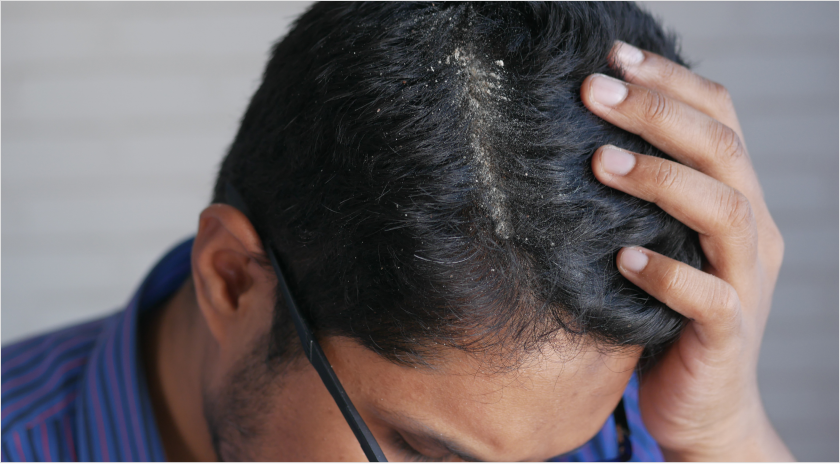Causes of Male Hair Loss: Myth or Fact
Separating fact from fiction to address your hair loss concerns

Here’s the thing: most men (and women) will experience hair loss in their lifetime. And many think that hair loss is something that they, or their parents' genetics caused. However, genetics aren’t always the issue. There are a lot of stubborn hair loss myths out there – many of which prevent you from getting the right hair loss solution..
Male pattern baldness or androgenetic alopecia is the most common type of hair loss (and what we’ll focus on), caused by shrinking hair follicles over time. When the follicles eventually stop growing hair, that’s when balding happens. Let’s set the record straight on some of the most common hair myths that you may have heard.
Myth: Hair loss only occurs with age
Fact: Hair thinning with aging certainly happens to many men, but hair loss can affect individuals at any stage of life. Some men even start to lose hair in their teenage years. If you’re genetically predisposed to male pattern baldness, you may notice early signs of balding years before you expected to. If you are noticing hair thinning relatively early in your life, treatment is important as soon as possible.
Myth: Wearing hats causes hair loss
Fact: Did you stop wearing hats cause you were scared of becoming bald? There are many culprits responsible for thinning, but hats are not one of them. Contrary to common misconception, hair loss occurs at the root level, within the scalp, and isn’t generally affected by external factors. Wearing tight or sweaty hats for long periods of time can contribute to other issues like dandruff and folliculitis. Moral of the story, hats are okay, bad hair health is not.
Myth: Stress is the sole cause of hair loss
Fact: We’ve heard the saying “don’t stress yourself out or you’ll pull your hair out.” And while this is partially true, it is only true that big traumatic events have been linked to hair loss. Severe stress can put a pause of your hair follicles to regenerate hair and can also cause alopecia areata, where patches of hair are lost. At the end of the day, everyone faces mild stress from time to time. If this myth were true, we would all be balding!
Myth: All hair loss is permanent
Fact: Male pattern baldness, the genetic condition that causes male hair loss, unfortunately, is irreversible. However, hair loss caused by other factors, like illnesses, elevated trauma and hormonal changes can be resurrected with time. It may be hard to tell between the different forms of hair loss, so it is important to respond quickly. If you’re noticing a significant increase in hair loss, it’s important to see a physician to identify its cause.
Myth: Frequent haircuts makes your hair grow back thicker
Fact: Getting your haircut has nothing to do with the frequency or thickness of your hair growth. Your hair follicles are thicker at the base than at the tip. Cutting the visible portion of the hair, or the shaft, does not affect the activity or structure of the follicles responsible for your hair to grow. Similar to how hair loss can often be determined by genetics, you can thank your genes for the thickness of your hair too. The misconception of hair looking thicker after haircuts is common, as the fresh cut often has a blunt edge, enhancing the fullness. Give it a few weeks, and the perceived thickness will return to its natural taper.
Myth: Baldness only comes from the mother’s side
Fact: Before you go yelling at your mom’s family for causing your balding, baldness is often influenced by both maternal and paternal genetic factors. The main gene associated with male pattern baldness is called the androgen receptor gene, which can be inherited from either parent. If your mother OR father’s family has a history of baldness, you can inherit either gene and experience male pattern baldness.
How can Agile help with common conditions?
At Agile, we believe everyone should have access to excellent healthcare, regardless of where you are or when you need it. We offer convenient, virtual care across the U.S. for your most common medical conditions. Our network of providers are ready to address your unique concerns to deliver effective, personalized treatment in a timely manner.
To tap into fast, cost-effective care now, schedule a consultation with one of our licensed clinicians!


